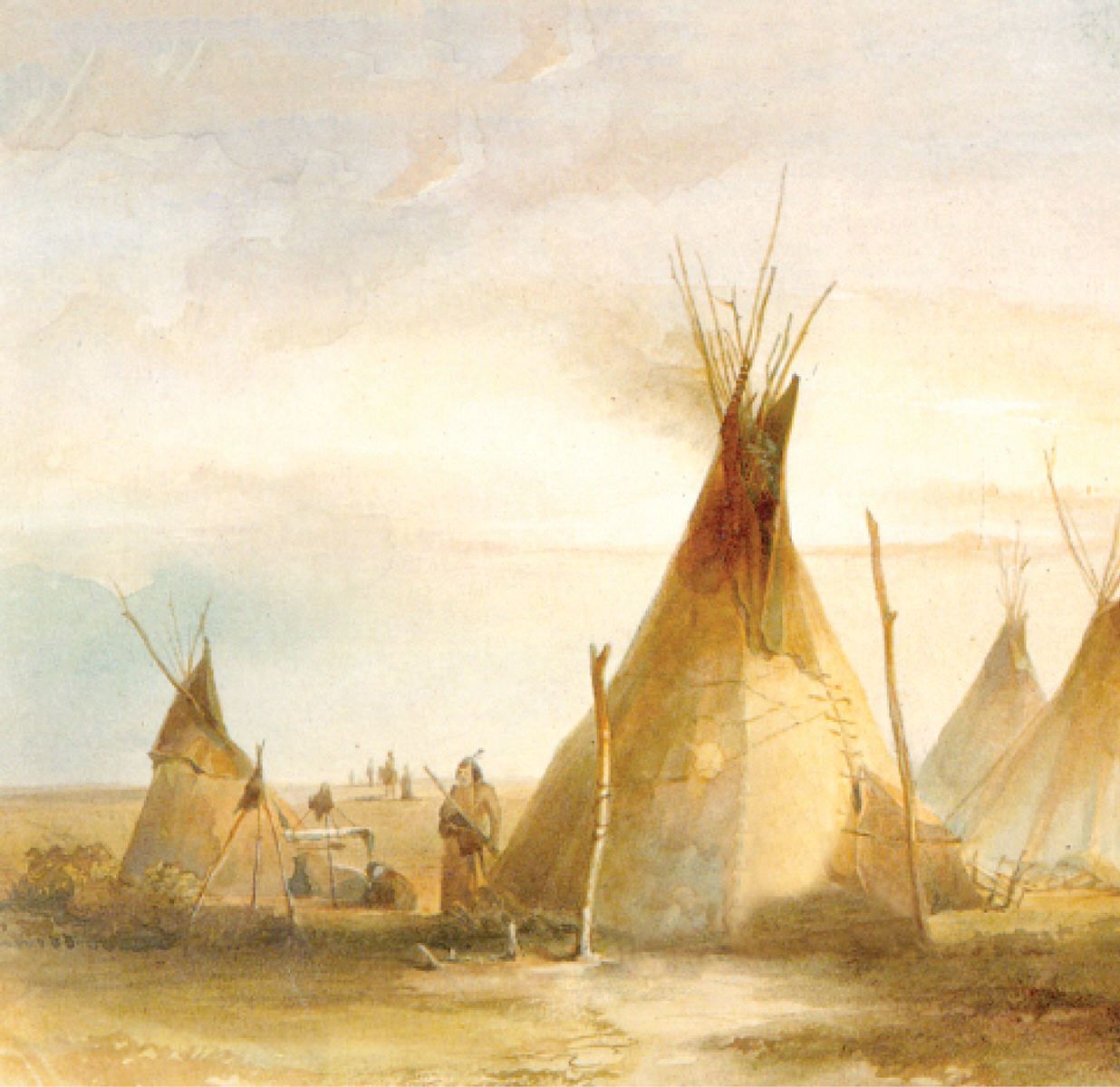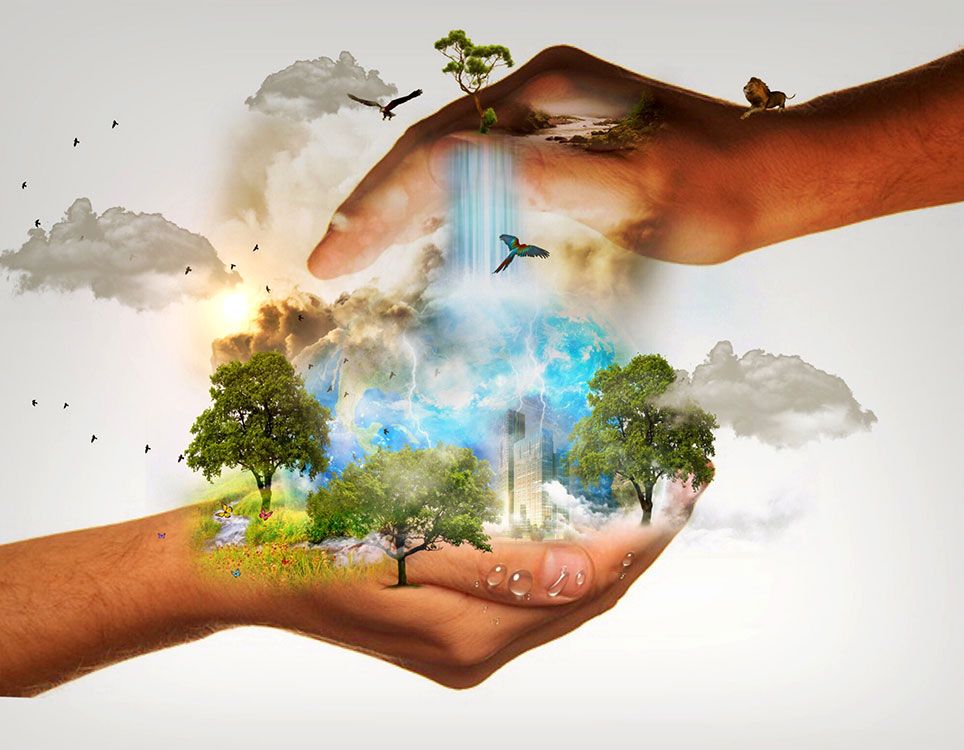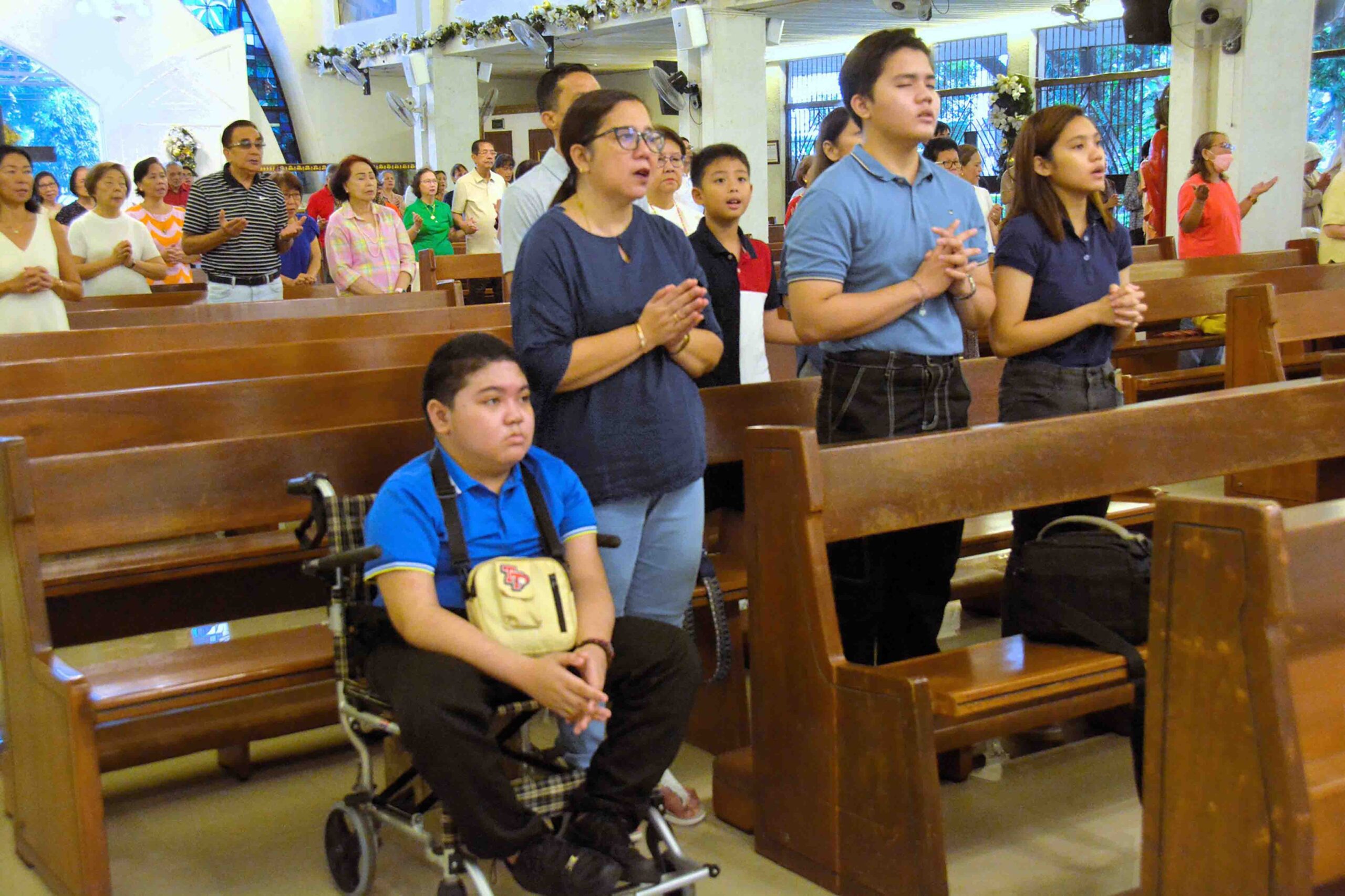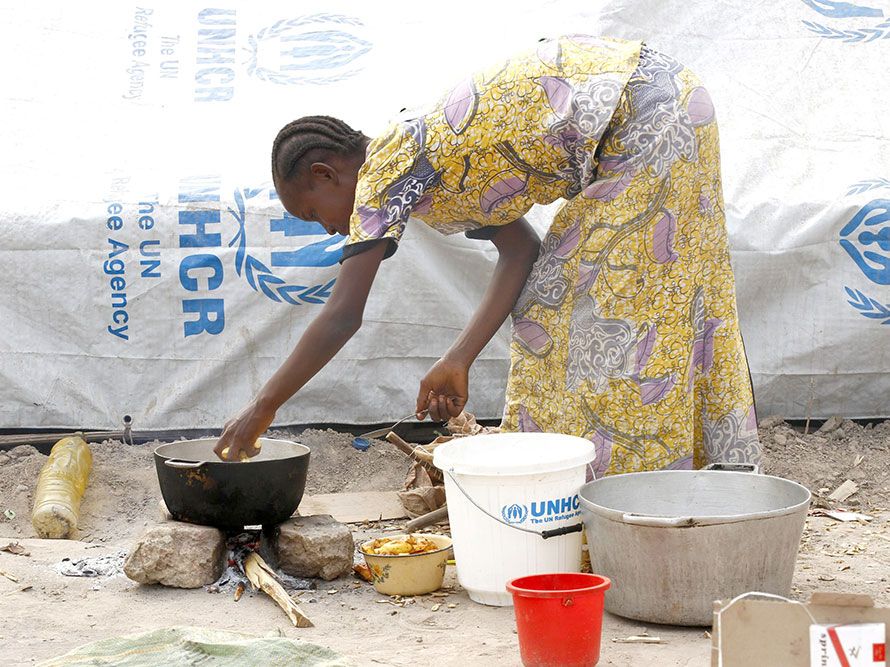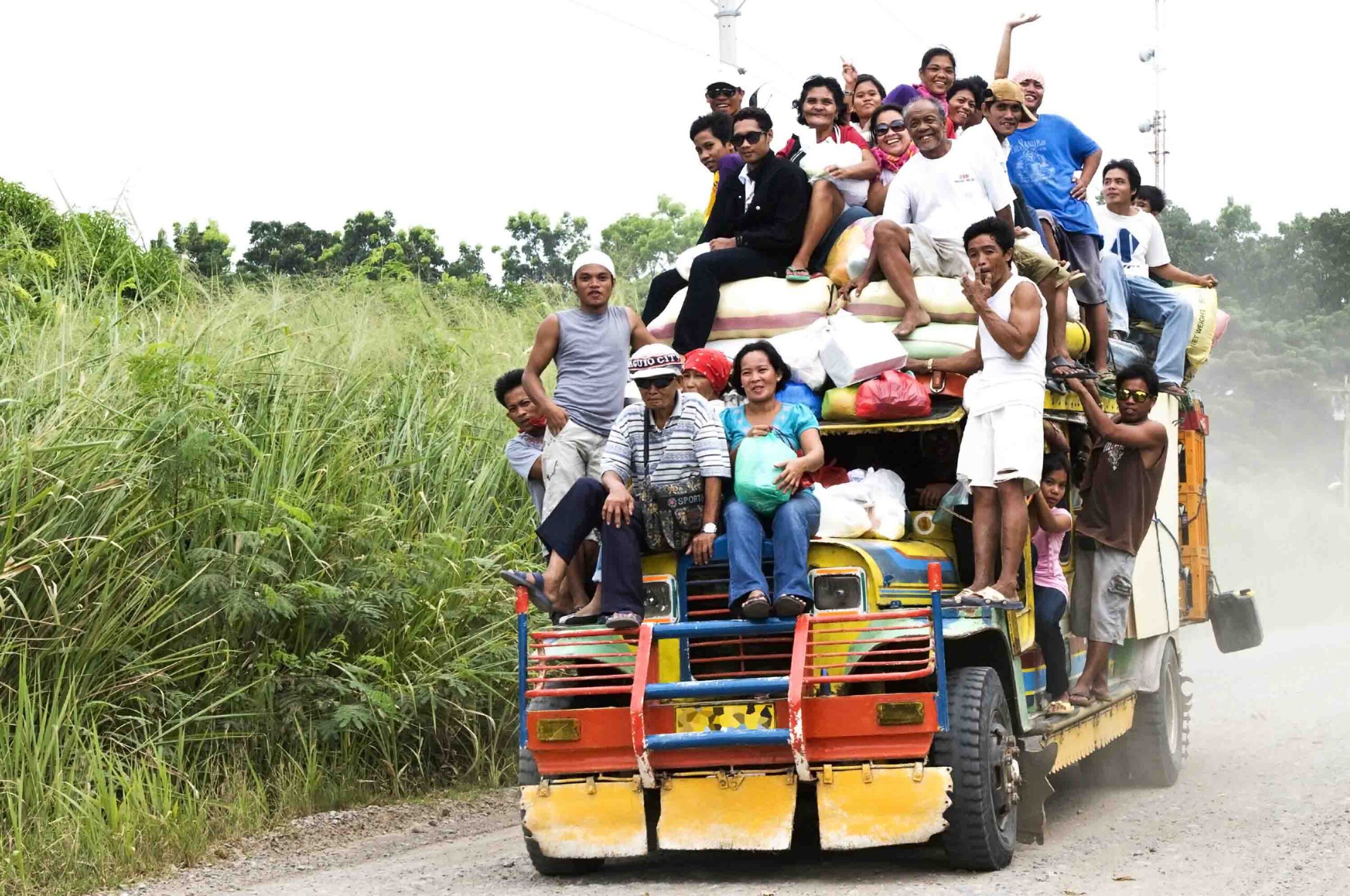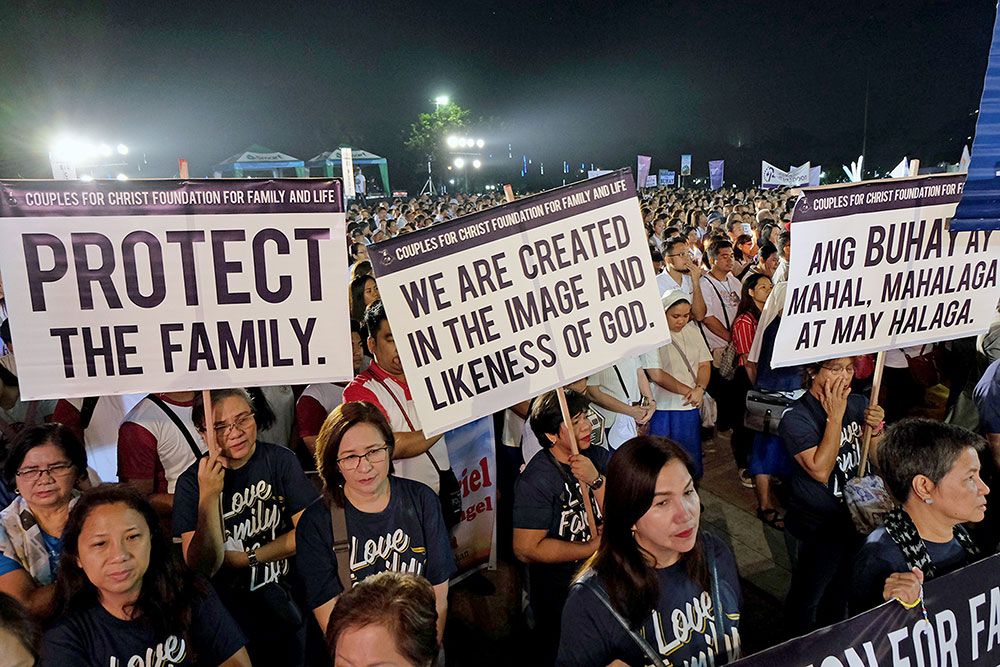Being a victim of abuse herself led Jo Enrica “Jean” Enriquez-Rosales to advocate for women’s rights. Her work against trafficking and prostitution of women and promotion of women empowerment was recognized worldwide when she was given the United Nations Educational, Scientific and Cultural Organization (UNESCO) Chair Award in 2014. Known within feminist circles as Jean Enriquez, she was among Marie Claire’s Ten Women of the World for 2007, Ten Outstanding Women in the Nation’s Service in 2010, Seven Modern-Day Heroes of Yahoo! Southeast Asia in 2011, and Good Housekeeping magazine’s Fifteen Women Trailblazers in 2013.
Enriquez has roamed the streets of the Philippines and has gone to other Asian countries, reaching out to women who have been victims of trafficking and prostitution. She has also traveled across the globe advocating for the humane treatment of women and protection of their human rights.
How did your advocacy for women’s rights start?
My advocacy started early because my family was part of the anti-Marcos dictatorship struggle. I was only 13 years old and we were already saying that the dictatorship was not acceptable. When the dictatorship fell in 1986, I returned to the University of the Philippines. I read books and became more exposed to women’s issues. I remember that when we were fighting repression during the dictatorship, we didn’t talk much about women’s issues. How women were being raped at a very young age, how they have been exposed to abuses and how they are being seen as mere sexual objects. I’ve felt that myself, having personally experienced attempted rape.
Women’s issues are very personal issues that are not being taken up by insitutions that are supposedly pushing for change. Many will just talk about economic and political issues but hardly women’s issues. So in the university, I began gathering young women to talk about their issues and, seeing the graveness of what some were experiencing – being treated as less than human beings, being sexually harassed or raped – we have to move against it. I started writing in the Philippine Collegian about women’s issues that were not being made visible especially during the 80s. For me, women’s issues are very important issues that we have to take up because inequality is destroying lives.
Can you expound on your statement about experiencing attempted rape? Was that the turning point of your involvement in women’s advocacies?
I experienced attempted rape and it was very ironic because it happened within our youth group that fought the Marcos dictatorship. Because our group was male-dominated (I was just one of two women), maybe the idea was that I was an easy prey for some. Fortunately, the other men stood up for me.
Subconsciously, I knew sexual harassment was happening not only to me. I knew it was also happening to other women. And true enough, when I read up, I read plenty of cases: if not rape, abuse against women also came in the form of how boyfriends treat their girlfriends as “discardable commodity.”
When I went to poor communities, I encountered women’s issues there as well. I met women who just married the men who raped them. There were mothers who do not know their rights and powers as women. I eventually got involved in the Coalition Against Trafficking of Women-Asia Pacific (CATW-AP) because trafficking and prostitution are the worst manifestation of oppression against women.
What is your organization’s position on the issue of legalizing prostitution?
Prostitution should not be considered legal, only the victim should be decriminalized and they should not be arrested. But it’s not the reality these days. The victims are the ones arrested but the pimps and customers are not made liable. We think it should be the other way around. We should protect the victims, knowing the history of the women. Part of the root of the problem is the demand. If there is no demand, there is no supply. Men who rape should be made accountable for using women’s bodies simply because they can pay the women. They are the ones that should be incarcerated along with prostitution establishment owners.
Prostitution is at the nexus of economic inequality and gender inequality. When a person is poor and if she’s a woman or a girl, she’s more vulnerable to being exploited by traffickers. In many ways, Pope Francis discussed the factors that contribute to prostitution of girls: poverty and gender inequality. At U.S.T., when a young girl asked Pope Francis why there is prostitution, the Holy Father, in all humility, said, “I do not know.” But in fact, he suggested that part of the problem is due to the lack of women’s participation in society. He urged society to make women more visible. The lack of women’s voice in society also contributes to the vulnerability of women.
Fighting prostitution and promoting women’s rights are part of a larger-than-life advocacy. What are the frustrations that you met along the way and what had kept you going?
In this advocacy work, there are a lot of frustrations. For one, a lot of the women would still go back to prostitution despite our efforts of empowering them, journeying with them, going through what they felt and helping them out. Les Miserables is a very powerful movie [for us]. Even though the bishop in the story was robbed by Jean Valjean, he still accepted her, saved the woman from prostitution and told the police to arrest the man instead. We have encountered the likes of Jean Valjean, survivors who took money from us and concoct stories against us. But we continue to accept them and forgive them. You just have to have limitless compassion to be able to keep working for their good.
It is also frustrating that groups lobbying for the legalization of prostitution are growing in number. Academics and pro-legalization advocates want prostitution to be legalized, arguing that women chose to be part of this industry. But because we are confident in what we know, we continue to oppose them. We’ve gone through the streets and seen prostitution in the Philippines, India, Indonesia, Korea, and other parts of Asia, that’s why we know that what the academics are saying is not true. When you talk deeply to the women, they will tell you their story that they did not choose prostitution willingly. What the women are telling us is the reality of what drove them to it.
What other factors lead women to prostitution?
Women who had been trafficked were pushed to go to prostitution because of extreme poverty and their experience of child abuse. At least 90 percent of the women whom we have helped were victims of incestuous rape by their father, uncle, cousin or brother. The problem is, once a girl was abused, she’s seen as impure and the blame is put upon her rather than the rapist or the abuser. Therefore, many of them become vulnerable to trafficking; they internalize what society says: that she’s dirty and broken.
A lot of women whom we have helped tried to escape their homes because they were blamed for what happened to them. They were easily recruited for prostitution by traffickers and the women’s pimps because, in their mind, that was exactly what their relatives haddone to them. This is what the public oftentimes misinterpret as having a choice when there is none. Women in prostitution are in a situation of desperation. They are victims of abuse and because of poverty, they become more vulnerable. Traffickers take advantage of their need if money.
Based on your information, what factors lead men to prostitution?
Part of our work at the CATW-AP is conducting a gender-sensitivity training for men. During the training, men revisit how they have internalized that they have power over women. The problem with our culture right now is that there’s an internalization that men are above women. In the Philippines, India or Indonesia, men think that, to be able to ‘buy’ a woman in prostitution, is part of their initiation in becoming a “real man.” Sometimes, the older members of the family even encourage young boys to do so just because they have “come of age.”
The problem there lies in the definition of masculinity in society. In our culture, treatment of boys is different from that of girls, starting from childhood. Men are more privileged than women, and media adds insult to injury by portraying that men can just rape or ‘buy’ women in prostitution whenever they feel the sexual urge. Culture, pressure from family or peers and exposure to pornography all contribute to driving men to prostitution.
How does your organization avert the consequence of culture, peer pressure and pornography and other factors leading to trafficking and prostitution of women?
In our organization, we have programs on policy advocacy, education and training, research and documentation and empowerment of survivors. Under the education and training, we educate communities down to individual men. At the barangay level, we have a project called Bantay Bugaw or ‘Pimp Watch,’ which empowers communities so that they will watch out for recruiters who are bringing women and children towards prostitution and other forms of exploitation. We also talk to the mayors and vice mayors, so that the local council can pass ordinances that will prevent trafficking at the local level.
We also educate local officials, particularly law enforcers. Targeting the police is ground breaking for us because the police is generally perceived as a part of the perpetuators of prostitution as most of them are co-owners of prostitution bars. And in our long work of helping women who have been trafficked, specially in the streets, we have learned that, often, the women are arrested by the police using the Vagrancy Act, which criminalizes the women instead of the pimps, bar owners, and the customers. Some of the police even convince the arrested women to go with them or have sex with them in exchange for their liberty. As I said, educating the police is a ground breaking work because we intend to change their mindset, and to change that is to challenge their machismo and their very sexist interpretation of laws.
We are also educating young men to change their idea of masculinity. We target boys aged 16 to 21 so that, later in life, they will not be ‘buyers’ of women and children in prostitution. At the end of our training for the boys, they will, hopefully, have a new definition of manhood: that a real man is someone who respects women, shares in the house work, and does not ‘buy’ women and children in prostitution.
Recently, I was one of the four facilitators of a training for bishops, priests and youth ministers. It was a first-of-its-kind training since it was attended by five bishops and 11 priests from 11 dioceses all over the country. This was conducted in cooperation with Talitha Kum, the Asia-Pacific organization of faith-based groups, mostly of nuns fighting trafficking; and the Episcopal Commission on Youth of the Catholic Bishops Conference of the Philippines. During our training with the priests, they admitted that the church also has contributed to the unequal treatment of women due to misinterpretation the Bible on marriage vows. Now, the priests are stressing that man should love and submit to the wife just as the woman should love and submit to the husband. They have realized that telling the wife to submit to the husband perpetuates the idea that women are less than men.
Part of your work is empowering trafficked women. How do you do it?
First, we go to the streets where the women are. In Metro Manila, we regularly go to Cubao and Carriedo, with bread and coffee to share, and we talk to them. In the provinces, we have members who visit prostitution bars in Olongapo and Davao. That’s how we get in touch with women who have been prostituted or trafficked. That’s also the start of our healing conversations with them. When they have come to trust you – which is hard because there are just too many NGOs and they don’t think everyone is sincere – they tell you their stories. We’ve been in the streets for a long time so we conclude that 90 percent of the women we have helped had been victims of abuse.
When they come to our organization, we also help in healing them through conversations. Healing takes a long time, especially for those who have been in prostitution for many years. Other than our healing conversations, there are also group healing or processing.
We also have other interventions, depending on the path they want to take. If they want to reenter formal education, we support them. Unlike other NGOs, we don’t offer them vocational training or livelihood skills. For us, what is more important is for the women to be able to recover their dreams in childhood. None of them dreamed of becoming a prostitute.
Are you a Catholic? How does your spirituality contribute to your advocacy work?
Yes, I am a Catholic but I rarely emphasize that in my advocacy work because we work with Muslims, Ulama and many others. I think spirituality has a very strong role in my work because one can only draw courage and tenacity from an inner well and that inner well can only be spirituality. That is what people don’t realize and that is what I remind survivors: that there’s a great love within one’s self. Catholics will call it God, we all have that inside us. You just have to be aware of that strong love. Many of us had been raised to look for love externally but not look for it by praying or by meditating. You can find that in your dialogue with the Source or God. Sometimes, when I ask them, “how did you survive?” they often say, “because I pray.”
How does God motivate you in your work?
Talitha Kum is the Hebrew phrase for “rise up, girl,” which are the words said by Jesus when he was asked to raise a girl from death. Jesus reached out His hand and told her to rise up. That is metaphorical for trafficked girls and women because, in prostitution, they may have considered themselves already dead due to the trauma they have gone through. Women are valued according to their chastity, after all. Trafficked women, from our experience in helping them, often feel that their lives are done, so to tell them to rise up is really empowering them, which is what we do in our organization.
In our work, we often emphasize how Jesus clearly shows examples of equality between men and women; for instance, when he talked to the Samaritan woman by the well. The Samaritan woman was known to be a loose woman that’s why she was fetching water at noontime to avoid being seen. Up to now, people would cruelly criticize women who are known to have multiple relationships. They could already be considered as prostitutes or loose women by the society. But what Jesus did was He talked to the woman by the well. The disciples did not understand why. They were surprised how He could talk to a woman of a different belief, let alone someone considered as a loose woman.
By Jesus’ example, He showed that we should not judge anyone. Not only did He talk to the woman by the well but He also asked water from her! She was struck by the way Jesus treated her; she who was likely to be stoned by the people. It’s very important to look at the examples of Jesus and how He was actually challenging traditional notions of masculinity and womanhood. He looks at both man and woman as equal. Women deserve respect no matter what.
For more details about the work of the Coalition against Trafficking of Women, visit the organization’s website http://www.catw-ap.org.ph/ or contact Ms. Jean Enriquez at jeanenriquez@gmail.com.









